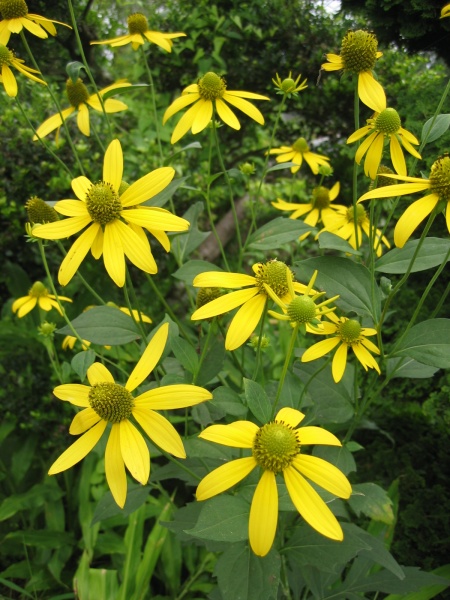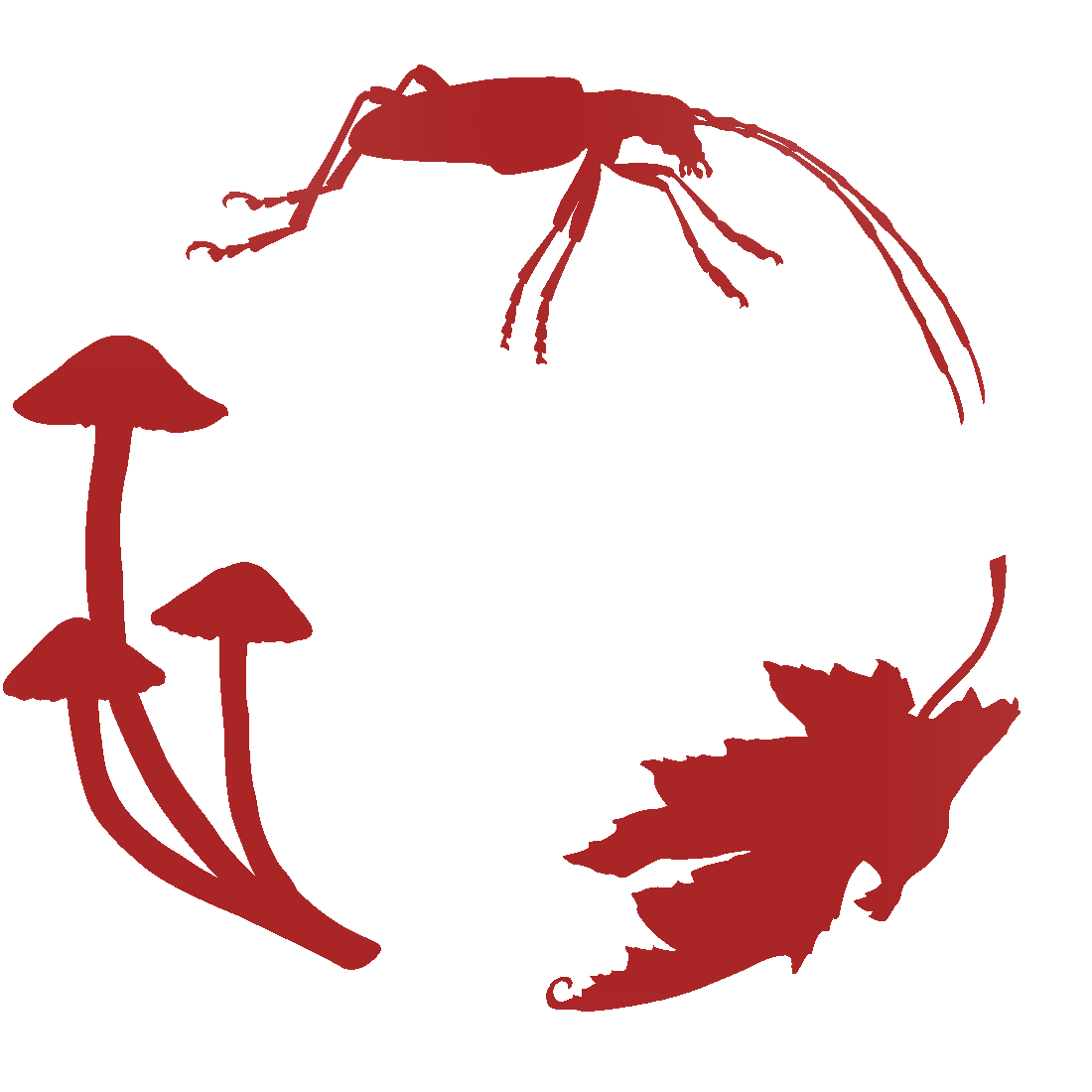 Known to be toxic - Toxic to mammals if ingested.
Known to be toxic - Toxic to mammals if ingested.

Source: GFDL
Rudbeckia laciniata
Cut-leaved Coneflower
Rudbeckie laciniée
Synonyms
green-headed coneflower
tall coneflower
rudbeckia lacinié
Seeds in stock
Available at table Shade
Available at table Shade
We currently accept seeds for this plant
Bloom Colour: Yellow
Bloom Period: Jul - Sep
Max Height: 7.0 feet
Max Width: 4.0 feet (spreads by rhizome)
Light Condition:
 More than 6 hours of direct sun a day
More than 6 hours of direct sun a day
 More than 2 or 3 hours but less than 6 hours of direct sun a day
More than 2 or 3 hours but less than 6 hours of direct sun a day
 Less than 2 or 3 hours of direct sun a day
Soil conditions:
Less than 2 or 3 hours of direct sun a day
Soil conditions:
 Tolerates medium soil condition
Tolerates medium soil condition
 More than 6 hours of direct sun a day
More than 6 hours of direct sun a day
 More than 2 or 3 hours but less than 6 hours of direct sun a day
More than 2 or 3 hours but less than 6 hours of direct sun a day
 Less than 2 or 3 hours of direct sun a day
Less than 2 or 3 hours of direct sun a day
 Tolerates medium soil condition
Tolerates medium soil condition
Lifespan:
Perennial
plants that will that come back year after year
Gardener Experience:
 Easy to germinate
Easy to germinate
 Self-seeding
Self-seeding
 Easy to germinate
Easy to germinate
 Self-seeding
Self-seeding
Landscape Uses:
 Suitable for rain gardens
Suitable for rain gardens
 Suitable for shoreline rehabilitation
Suitable for shoreline rehabilitation
 Suitable for container garden
Suitable for container garden
 Suitable for school gardens
Suitable for school gardens
 Suitable for woodland gardens
Suitable for woodland gardens
 Suitable for rain gardens
Suitable for rain gardens
 Suitable for shoreline rehabilitation
Suitable for shoreline rehabilitation
 Suitable for container garden
Suitable for container garden
 Suitable for school gardens
Suitable for school gardens
 Suitable for woodland gardens
Suitable for woodland gardens
Ecological Benefits:
 Supports pollinators
Supports pollinators
 Bee host
Bee host
 Keystone species
Keystone species
 Supports pollinators
Supports pollinators
 Bee host
Bee host
 Keystone species
Keystone species
Tolerates:
 Deer resistant
Deer resistant
 Rabbit resistant
Rabbit resistant
 Tolerates sandy conditions
Tolerates sandy conditions
 Tolerates juglone conditions
Tolerates juglone conditions
 Tolerates transplantation
Tolerates transplantation
 Deer resistant
Deer resistant
 Rabbit resistant
Rabbit resistant
 Tolerates sandy conditions
Tolerates sandy conditions
 Tolerates juglone conditions
Tolerates juglone conditions
 Tolerates transplantation
Tolerates transplantation
Special Features and Considerations:
Plant Location
Native to Ottawa region: Yes
Distribution according to VASCAN

Ephemeral
Native
Introduced
Excluded
Extirpated
Doubtful
Absent
Thrives in Ecozones
- Atlantic Maritime
- Prairies
- Boreal Shield
- Mixed Wood Plains
Ecological Benefits
Butterflies Supported by Rudbeckia laciniata
No butterfly data available for this plant.
Specialized Bees Supported by Rudbeckia laciniata
- Andrena aliciae
- Andrena rudbeckiae
- Complexe Colletes americanus
- Complexe Colletes compactus
- Megachile inimica
- Megachile pugnata
- Melissodes agilis
- Melissodes illatus
- Melissodes subillatus
- Melissodes trinodis
- Protandrena andrenoides
Plants that grow in similar conditions, that bloom at the same time.
Complementary Plants
- Agastache scrophulariifolia
Purple Giant Hyssop
Agastache à feuilles de scrofulaire - Amorpha canescens
Leadplant
Faux-indigo blanchissant - Anemone cylindrica
Long-headed Anemone
Anémone cylindrique - Elymus canadensis
Canada Wild Rye
Élyme du Canada - Oenothera gaura
Biennial Gaura
Gaura bisannuel
Substitute For Non-Native Plants
- Oenothera (Non-Native Primrose)
- Oenothera biennis (Evening Primrose Cultivars)
- NA (Black Eyed Susan's Cultivars)
- Rudbeckia Triloba (Brown Eyed Susan's)
- Echinacea (Coneflowers)
- Leucanthemum (Shasta Daisy)
- NA (Non-native False Sunflower)
Sowing Information
Download Seed Envelope Labels (PDF)
- Sowing depth: Sow just below surface
- Sow by March
- Stratification duration: 30 days
- Self-seeding
Harvesting and Seed Sharing
- Harvest start month: September
- Harvesting indicator:
- Seeds easily fall off when you gently pull them off
- Harvesting:
- Cut top edge then shake seeds off in bag or container with rock or equivalent
- Seed viability test:
- No test needed before donating
- Packaging measure: 1 rounded 1/8 teaspoon
- Seed storage:
- Air dry in paper bag or open container, for a few days until crisp
- Shake seeds to move them once in a while to prevent molding
- Cultivar: Yes, do not donate unless you know source, and there are no known cultivars in your garden or at proximity
- Remove non-seed material
- No harvesting video available at this time.
Toxicity Notes
Toxic to mammals if ingested.


 Canadensis
Canadensis
